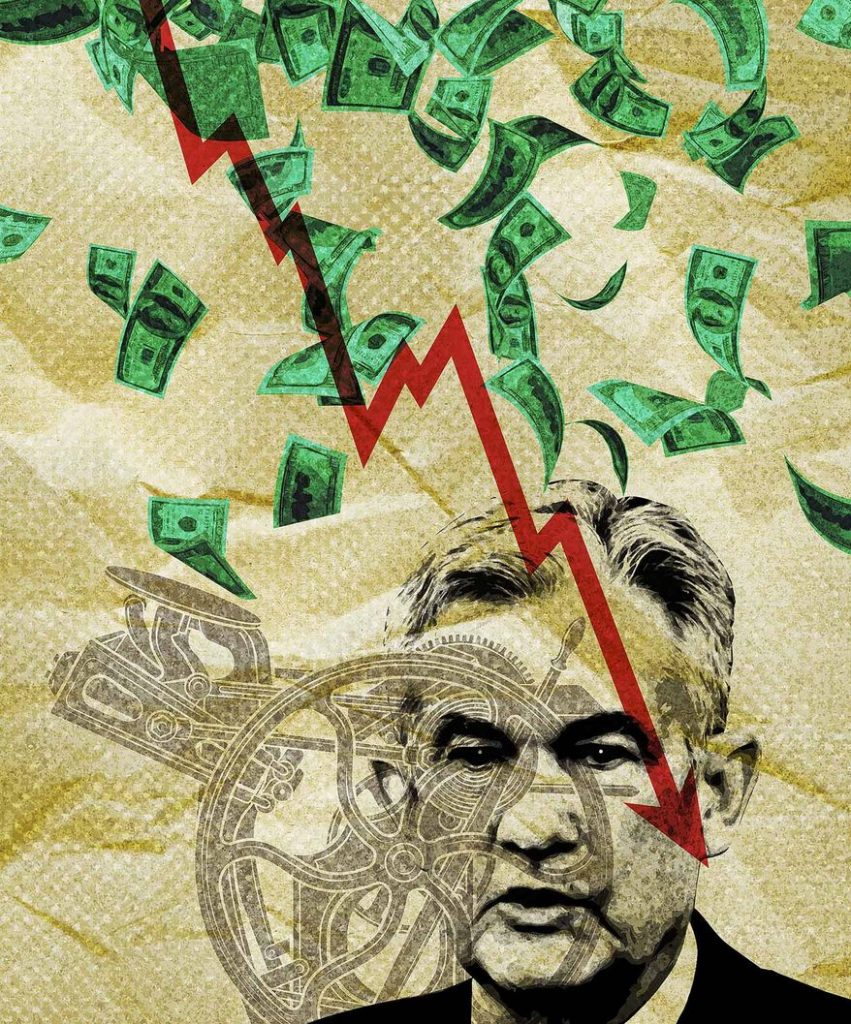PERIODIC ECONOMIC REVOLUTIONS REQUIRED TO CLEAN OUT THE ROTTEN AND EXCESSIVE GOVERNMENT
OSLO, Norway — Norway would be almost the ideal country if it were not a bit cold for my tastes. This country of 5½ million with almost no crime has the fourth-highest per capita income in the world and is exceptionally clean. Having massive oil and gas production and reserves, along with a long tradition of good and responsible government (it is a constitutional monarchy) of course, helps to keep it rich and happy. It also has spectacular scenery.
Norway has an independent central bank, which issues its own currency. Like most other places in the world, it has been suffering from higher rates of inflation, but even so, its inflation rate has been running about two-thirds of that of eurozone countries or the U.S. As with virtually all central banks, it has the mandate of price stability.
Many, including those in government, often fail to remember when the U.S. Federal Reserve was established back in 1914, it was given the sole mandate of price stability. A few decades ago, the Fed’s mandate was expanded to include maintaining full employment — as if the requirement of price stability would never conflict with the requirement to support policies that would ensure full employment. The Biden administration has now required that the Federal Reserve take on the added responsibilities of offsetting the cost of the pandemic, ensuring climate preservation, and promoting race and gender equality — but the inflation rate is almost 9%. Oh, never mind!
I expect that at some point a Fed chairman will testify before the Senate and be berated by a senator for not hitting the inflation targets. And the Fed chairman responding: “Yes, we missed our inflation targets but we did hit our target for hiring Native American women, and our target of reducing our carbon impact by replacing the Fed motor vehicle fleet with electric cars and trucks. So two out of three is not bad.”
The European Central Bank (ECB) also had as its original mandate “price stability,” which it did quite successfully until it was hit with eight or so other goals in the past couple of years. And like America, the euro countries now have a 9% inflation rate. So much for keeping their eyes on the ball.
As President Thomas Jefferson wrote more than two centuries ago, it is the nature of government to expand at the expense of the liberties of the people. Most are aware that governments have been growing, but most are not aware of how rapidly the governments in every major and most smaller countries have grown in the last half-century. The enclosed table shows what has happened to government spending as a share of GDP for the major economies — excluding China, whose statistics are less than reliable.
I included Switzerland along with the major countries because they have instituted a “debt brake” that appears to be working as a device to constrain the growth in government, indicating the problem may be solvable with proper political leadership. And I have also included Norway because it is a petrostate in that it relies heavily on oil and gas revenue and has a massive sovereign wealth fund, which is designed to provide a cushion once the oil and gas has run out.
It should be obvious that the growth in government cannot continue at the same rate. Despite the rise in socialist thinking, even the most committed socialist does not want to go back to old state-owned and -operated restaurants of the Soviet Union and elsewhere.
It has also been empirically demonstrated for the last few decades that as the government sector grows bigger, economic growth slows. There appears to be a natural limit of how big the government sector can be as a share of the whole economy, and that appears to be roughly 60% of GDP. Beyond that, the inefficiencies of government become so great that the underground market takes over.
The same thing is true with taxation. Again, there appears to be no country that is able to tax more than 50% of measured GDP over the long run, until the underground economy fully takes over. How odd — most people don’t work, save, and invest to pay taxes. The optimal levels of government size and taxation are far lower than the maximum ones.
The ever-growing state is fueled by the demand for ever-richer retirement, medical subsidies, and mission creep. Some countries have been reasonably successful in finding ways to limit or cap retirement and medical benefits so they are not growing faster than the economy. So there again is hope for the majority of the countries that have yet to restrain the “entitlement” monster.
The natural tendency of bureaucracies is to grow because of the desire of those in charge of them to gain power and money by expanding their turf. Many government agencies and regulatory bodies endlessly poach off the real bailiwicks of others to expand their influence, power, and budgets. The Securities and Exchange Commission in the U.S. is now trying to give itself an environmental regulatory role, even though it has no statutory authority for doing so.
Again, Jefferson and others have noted that periodic economic revolutions are probably required to clean out the detritus of rotten and excessive government. How soon?
• Richard W. Rahn is chairman of the Institute for Global Economic Growth and MCon LLC.
https://www.washingtontimes.com/news/2022/oct/10/the-never-ending-state-of-rotten-and-excessive-gov/
© Copyright 2022 The Washington Times, LLC.

